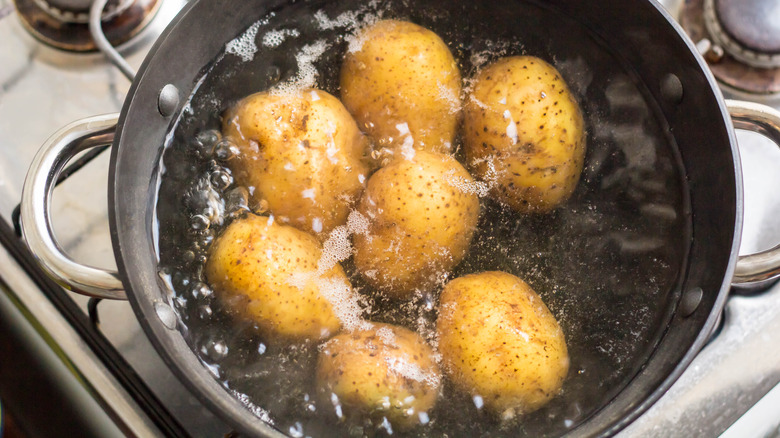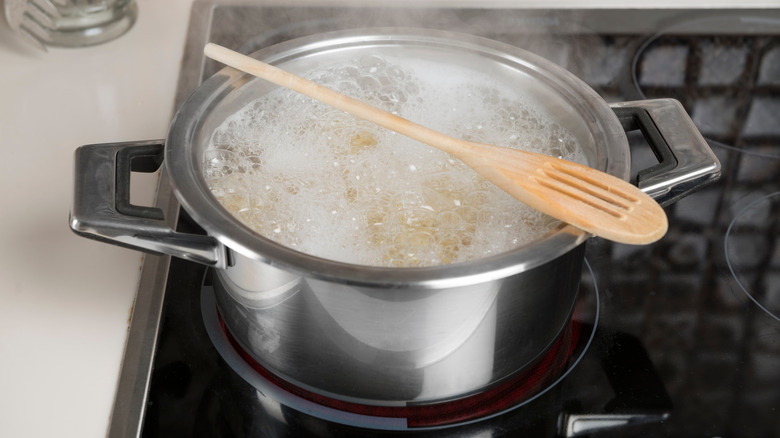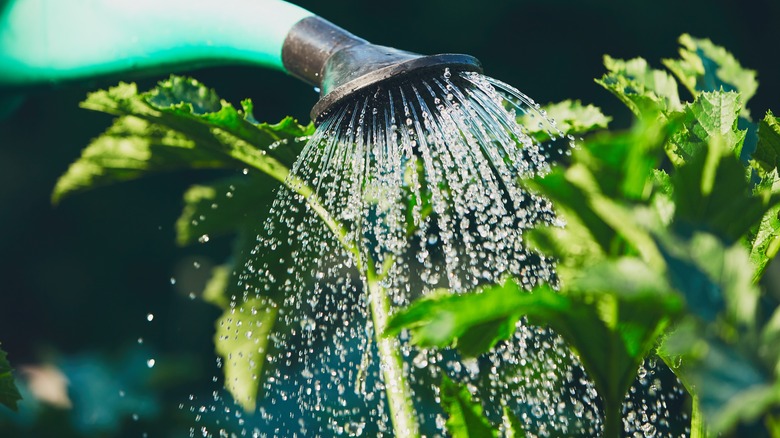You Should Really Be Watering Your Plants With Potato Water. Here's Why
If you're into sustainable living and trying to practice eco-friendly gardening techniques, throwing an entire pot of boiling water down the drain just feels like a waste. This water may be the answer to helping your garden flourish without investing in expensive fertilizer. By introducing essential nutrients into your soil, you can see a big difference when growing both indoor and outdoor plants. Consider trying out this natural trick — reuse your cooled potato water to bring nourishment and new life to your garden or houseplants.
The water you boiled your potatoes in is dense with nutrients that occur naturally in this versatile vegetable. As the water cools, the starchy solution stores the vitamins and minerals from the potatoes. Unlike normal tap water, this solution can aid your plant's growth by providing them with the necessary compounds they need to grow properly. What's better, any leftover potato water can be poured over your compost pile to give it a boost.
Why your plants will love potato water
Humans and plants alike can benefit from the potassium and other vitamins that occur naturally in the makeup of these underground tubers. Potatoes boast high amounts of vitamin C, vitamin B6, and starch. When used to water your plants, the potato water, which is now packed with these supplements, can incite the release of more nutrients that are already present in the soil. Keep in mind, however, that potato water cannot replace a good liquid fertilizer entirely. You may need to occasionally supplement with plant food that provides them with other important plant nutrients such as nitrogen, sulfur, magnesium, and calcium.
Additionally, If you tend to boil your potatoes with the skin on, you might consider taking a different approach. As described by Armen Adamjan on TikTok, you can peel the potatoes first and keep the skins for making fertilizer. Through a process of baking and grinding up the potato skins into a fine powder, you can sprinkle the powder on top of your plant's soil or mix them with water before feeding.
How to water your plants with recycled water
When boiling your potatoes, be sure to skip adding salt to the mix. Salt acts as a natural herbicide, so it will actually harm your plants. In addition, boiling water can kill plants down to their root, which means, if you have areas that you are trying to keep clear of plant growth, the mixture will effectively kill the vegetation there.
To make your potato water, boil them in unsalted water, then take each of the vegetables out with tongs or a slotted spoon. Leave the water in the pot and put it to the side while you're finishing your meal. Check the temperature of the water to make sure it's cooled enough, then you can pour it into a smaller glass or watering can — water your plants as normal and watch them flourish.
Surprisingly, potatoes are not the only food you can boil before giving the water to your plants. Other gardeners have had success with water from boiling eggs, pasta, and other vegetables too. Depending on what you boil, your plants will be given access to different vitamins or minerals, but potassium, nitrogen, phosphorus, and calcium are the most common.


